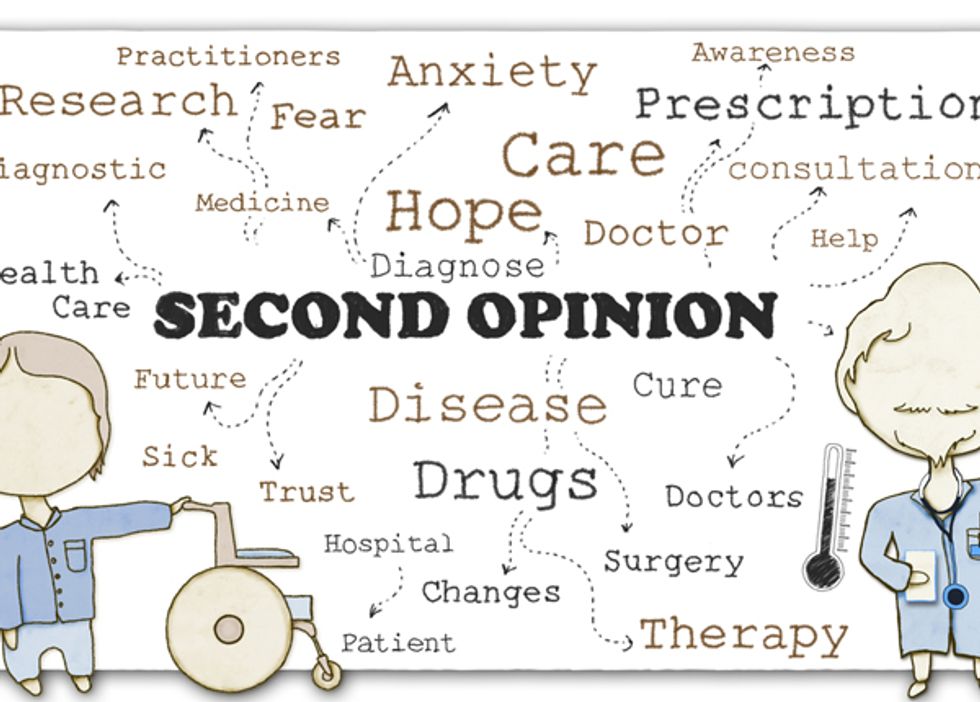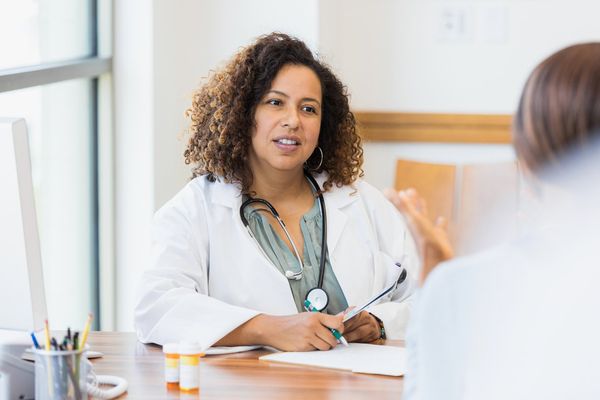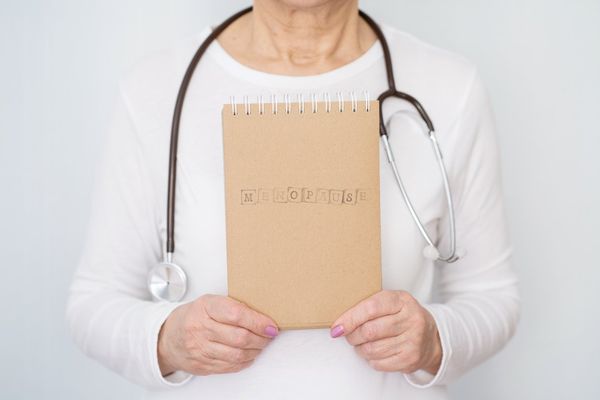Actress Rita Wilson, who recently announced her breast cancer diagnosis and subsequent double mastectomy, did the right thing when she sought out a second opinion. And doing so might have saved her life.
But too many of us are hesitant to question a medical diagnosis: a 2005 Gallup Poll that surveyed 5,000 Americans found that about half reported "never" seeking a second opinion and a paltry 3 percent always sought out a second opinion on a diagnosis, treatment, drug or operation.
Pretty frightening statistics, don't you think?
Years ago, when my own breast cancer diagnosis was still fresh, a woman I didn't know very intimately opened up to me during a play date for our sons. "I have a lump in my breast," she said, offhandedly.
"Did you have a mammogram?" I asked.
"Yes, and it was negative. So my doctor told me not to worry."
I must admit that I got a little—no, a lot—pushy (in retrospect, it was a good thing, but the fiery passion I felt was out of character for me). "Are you kidding? Don't take your doctor's word for it! Go get a second opinion!"
She did. And it was cancer. Today, many years later, she's cancer-free. When we occasionally run into one another, we hug warmly, and she thanks me for that day.
According to studies, 30 percent of patients who sought second opinions for elective surgery and 18 percent of patients who whose insurance company required them to seek a second opinion found that the two opinions were not in agreement.
Here's another example of why second opinions are so important: a 2006 study found that when breast cancer patients came to a specialty center for a second opinion, recommendations for surgery changed for more than half, a result of different interpretations and readings of mammograms and biopsy results.
Why would anyone shy away from second opinions?
- They may feel that time is of the essence. A cancer diagnosis is scary; and waiting on it is scarier still. Many people feel that they have to act immediately and get treatment right away; taking time to check out options, waiting for another medical appointment and sitting with the worry might just prove too difficult. While in some cases, it's imperative to take immediate action, most people can—and should—take some time to learn about the disease and weigh their options. Only then can they make an informed and educated decision.
- They may fear that they'll insult their physician. How can I doubt what she's telling me? What will he think of me if I go to another doctor? But the truth is that most doctors will welcome second opinions from another professional. They (should) understand your desire to be well-informed and an advocate for your own health. Many times they will recommend a specialist for you to see.
- They may feel like medicine is an exact science. Medicine has made tremendous advances, but many times, it's interpretive and not definitive. Not every doctor comes up with the same diagnosis. Not everyone agrees on treatment choices. And not every radiologist interprets imaging tests the same way. Keep in mind that there are so many factors that can influence opinions and diagnoses, such as technology, where the physician was trained, the level of experience in dealing with your particular diagnosis and his or her philosophy about treating something aggressively or taking a more wait-and-see approach.
- They may fear they will be even more confused. What if the two opinions don't match up? Then what? Sometimes that indicates you need to seek a third opinion, and then go with the one that gets the most votes.
- They may not want to incur the added expense. Most insurance plans will pay for at least part of the cost (and Medicare will pay 80 percent of the cost), assuming the testing is medically necessary, according to The Patient Advocate Foundation, which recommends calling your insurance provider in advance to avoid any problems or questions about billing. Arrive at your appointment prepared with all your previous medical records (you do have the right to all copies!), contact information about the first physician and, as always, your insurance card, list of prescribed medications and allergies, and any diagnostic test results.
This post originally appeared on mysocalledmidlife.net.







